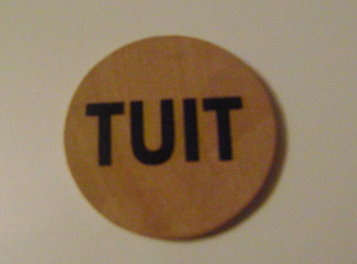Brian Blackwell
Senior Member
- Mar 10, 2018
- 994
- 129
- 45
- Banned
- #1
This thread follows the conclusion of a conversation between myself and Xelor on the following thread:
CDZ - The Government of No Authority, Part 1: Law and Morality
The transitional comment is provided here for easy reference:
"I have claimed that any moral person must conclude that governmental law is of no authority and therefore to support it would be both illogical and immoral. Illogical because it asserts a non-existent authority, and immoral because it demands that a person act immorally where divergences with their moral standard occur, while contributing nothing where they align (subsequently providing only the potential for net immorality).
This suggests that we must adopt the anarchist position by moral necessity; however, the proposition that anarchy is inherently immoral is antithetical to this conclusion. How do we resolve this contradiction?"
CDZ - The Government of No Authority, Part 1: Law and Morality
The transitional comment is provided here for easy reference:
"I have claimed that any moral person must conclude that governmental law is of no authority and therefore to support it would be both illogical and immoral. Illogical because it asserts a non-existent authority, and immoral because it demands that a person act immorally where divergences with their moral standard occur, while contributing nothing where they align (subsequently providing only the potential for net immorality).
This suggests that we must adopt the anarchist position by moral necessity; however, the proposition that anarchy is inherently immoral is antithetical to this conclusion. How do we resolve this contradiction?"

